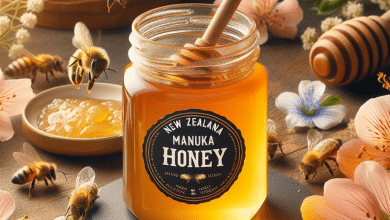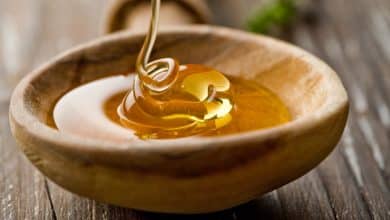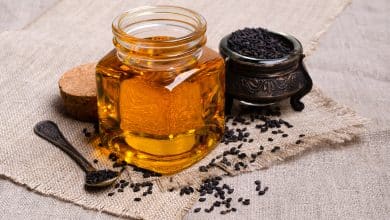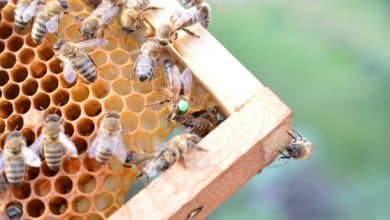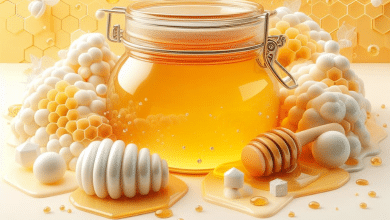The Role of Bee Pollen in Athletic Performance

Bee pollen is often hailed as a superfood, collected by bees from the male anthers of flowers, combining the nectar with enzymes and other substances. This natural supplement is rich in nutrients, including proteins, vitamins, and minerals, making it a go-to choice for health enthusiasts. Athletes are particularly interested in bee pollen due to its purported energy-boosting properties.
- Nutrient-Rich Profile: Bee pollen contains a remarkable array of nutritional components such as:
- Proteins (up to 40% of its composition)
- Essential amino acids
- Vitamins (B-complex, C, D, E)
- Minerals (calcium, magnesium, potassium)
- Antioxidants, including flavonoids and phenolic acids.
Individuals often share personal testimonials regarding the benefits of bee pollen. Numerous athletes—ranging from elite runners to weekend warriors—report feeling more energetic with regular consumption. It’s common to hear, “It gives me energy,” from those who integrate this supplement into their routines.
Importance of Bee Pollen in Athletic Performance
The interest in bee pollen within athletic circles stems from its potential to enhance performance and recovery. Athletes are on a constant quest for natural ways to bolster their training regimens and improve their physical capabilities, making bee pollen an appealing option.
Several researchers have examined the claims surrounding bee pollen‘s role as an ergogenic aid (enhancers of physical performance). Here’s what many athletes hope to achieve with bee pollen:
- Improved Energy Levels: The combination of carbohydrates and protein provides a quick energy source, making it particularly beneficial before workouts.
- Enhanced Recovery: Bee pollen’s antioxidant properties could aid in faster recovery from strenuous exercise by reducing oxidative stress on muscles.
Notably, while bee pollen is a popular supplement for athletes, scientific evidence supporting its effectiveness remains mixed. Some studies suggest improvements in work capacity and recovery in weightlifters, while others fail to find significant changes in performance markers like red blood cell counts and VO2 max during rigorous training.
In conclusion, bee pollen presents an enticing blend of nutrients that may benefit athletes. However, more robust scientific research is essential to substantiate the claimed advantages of this natural supplement for athletic performance.

Contents
- 1 Nutrient Composition of Bee Pollen
- 2 Benefits of Bee Pollen for Athletes
- 3 How to Incorporate Bee Pollen into Athletes’ Diet
- 4 Risks and Considerations
- 5 Research on Bee Pollen and Athletic Performance
- 6 How Does Bee Pollen Help with Athletic Performance?
- 7 Did Muhammad Ali Use Bee Pollen?
- 8 Is Bee Pollen Good for the Gym?
- 9 Does Bee Pollen Increase Cup Size?
Nutrient Composition of Bee Pollen
Vitamins and Minerals Found in Bee Pollen
Bee pollen is a powerhouse of nutrition, regarded as nature’s multivitamin. With its diverse range of vitamins and minerals, it serves as a beneficial supplement for athletes and health enthusiasts alike.
Among the vitamins found in bee pollen are:
- Vitamin C: Known for its antioxidant properties, Vitamin C plays a significant role in immune function and skin health.
- B-vitamins: This range includes B1 (Thiamine), B2 (Riboflavin), B3 (Niacin), B5 (Pantothenic Acid), B6 (Pyridoxine), B7 (Biotin), B9 (Folate), and B12 (Cobalamin). B-vitamins are crucial for energy production and maintaining optimal metabolic functions.
- Vitamin D: Though found in small amounts, it contributes to bone health and immune support.
Minerals present in bee pollen include:
- Calcium: Essential for muscle function and strong bones.
- Magnesium: Vital for muscle relaxation and energy production.
- Potassium: Important for nerve function and muscle contractions.
- Iron: Key for oxygen transport in the blood.
- Zinc: Plays a crucial role in immune function and wound healing.
One health enthusiast described their experience with bee pollen: “I started adding bee pollen to my smoothies, and not only do I feel more energized but my complexion has improved drastically!” Such anecdotes reflect the nutrient boosts provided by this supplement.
Protein Content in Bee Pollen
Bee pollen boasts an impressive protein content, often comprising up to 40% of its overall composition. This protein is unique and includes:
- Essential Amino Acids: Bee pollen contains all nine essential amino acids, including leucine, isoleucine, and valine, which are crucial for muscle repair and growth.
- Non-Essential Amino Acids: These include alanine, asparagine, and glycine, providing additional benefits for muscle development and recovery.
Many athletes turn to bee pollen for its high protein content as a natural source that aids in muscle synthesis and recovery post-exercise. For instance, a fitness coach shared, “I recommend bee pollen to my clients as a post-workout supplement—it’s packed with protein and other nutrients to help them recover.”
Incorporating bee pollen into one’s diet can take many forms, whether through smoothies, granola bars, or as a topping on yogurt. With such a rich nutrient profile, it’s easy to see why bee pollen is gaining popularity not only as a supplement but as a staple for a healthy diet.

Benefits of Bee Pollen for Athletes
Improved Energy Levels
Athletes continually seek effective and natural methods to boost their energy levels and performance, and bee pollen has emerged as a popular option. This nutrient-packed substance is celebrated not just for its flavor but also for its impressive energy-boosting capabilities.
Research supports the notion that bee pollen can enhance energy and athletic performance:
- A randomized controlled trial published in the Journal of the International Society of Sports Nutrition found that athletes who consumed bee pollen showed improved aerobic performance.
- Participants reported feeling more energized during intense training sessions.
Imagine prepping for a workout only to feel a lethargic cloud looming overhead. Instead of reaching for a sugary energy drink, you could add a spoonful of bee pollen to your smoothie. “On days when I’m dragging, I swear by bee pollen—it helps me power through my sessions with a zest I thought was long gone,” shared a local runner who swears by using this superfood during training.
Bee pollen’s ability to provide a quick energy source is likely due to its rich content of carbohydrates, proteins, and B vitamins, all of which support the body’s metabolic processes.
Enhanced Recovery and Muscle Growth
In addition to increasing energy levels, bee pollen has been shown to play a significant role in recovery and muscle growth, making it an invaluable supplement for athletes. Its unique combination of proteins, amino acids, vitamins, and minerals fosters a conducive environment for muscle repair after strenuous workouts.
Athletes often face the challenge of minimizing muscle soreness while maximizing recovery times. Bee pollen’s benefits include:
- Muscle Protein Synthesis: Bee pollen’s rich protein content contributes to muscle repair and growth, allowing athletes to recover efficiently.
- Anti-Inflammatory Properties: As bee pollen is known for its anti-inflammatory effects, it can help ease muscle soreness and swelling, allowing athletes to get back to their training faster.
One experienced weightlifter noted, “I noticed my recovery times shortened significantly after adding bee pollen to my post-workout routine. I can push harder during sessions now, thanks to quicker muscle recovery.”
In conclusion, incorporating bee pollen into an athlete’s dietary regimen may serve multiple purposes—boosting energy levels before workouts while supporting recovery and muscle growth afterward. Whether consumed as granules, in smoothies, or mixed with yogurt, this powerful superfood can provide athletes with a natural edge in their performance and recovery strategies.

How to Incorporate Bee Pollen into Athletes’ Diet
Bee Pollen Supplements
For athletes keen on boosting their performance and recovery through bee pollen, incorporating it into their diet can take several forms, with supplements being the most convenient option. Supplements are available in various formats, including capsules, tablets, and powders.
- Capsules/Tablets: Typically containing 200-500 mg of bee pollen per dose, these are easy to consume and can be taken on-the-go. Athletes often report taking five to ten capsules daily after workouts.
- Powder: This versatile form can be mixed into smoothies, yogurt, or water. It allows for customizable dosages depending on individual needs.
One triathlete highlighted, “Switching to bee pollen capsules made it so simple to fuel my body post-training. I love the fact that I can just pop them in my bag!”
Be sure to source high-quality supplements from reputable brands, looking for products that are certified organic and bee-friendly for sustainability.
Recipes and Ideas for Including Bee Pollen
Adding bee pollen to meals and snacks is not only beneficial but also a delightful way to enhance flavor and nutrition. Here are some practical ideas for athletes:
- Bee Pollen Smoothie: Blend together bananas, spinach, a scoop of protein powder, and almond milk. Sprinkle a tablespoon of bee pollen before serving for an energy-boosting start to your day.
- Yogurt Parfait: Layer Greek yogurt with fresh fruits, nuts, and a tablespoon of bee pollen. This makes for a delicious post-workout snack rich in protein and essential nutrients.
- Energy Balls: Combine oats, honey, nut butter, and a tablespoon of bee pollen. Form small balls and refrigerate for quick, nutritious snacks to carry on training days.
- Granola Bar Topping: Sprinkle bee pollen over homemade or store-bought granola bars for an added nutritional punch while enjoying a lightweight pre-workout option.
- Bee Pollen Salad: Toss leafy greens with your favorite veggies and sprinkle bee pollen on top, adding a touch of sweetness and a crunchy texture.
Incorporating bee pollen into these recipes not only amplifies the health benefits but also enhances flavors, creating an exciting culinary experience.
In summary, whether through convenient supplements or creative recipes, athletes can easily integrate bee pollen into their diets, harnessing its potential to boost energy and support recovery. Always listen to your body and consult with a healthcare professional if you have any dietary concerns!

Risks and Considerations
Allergies and Side Effects
While bee pollen is often touted for its numerous health benefits, it’s essential to approach its consumption with caution, especially for individuals with known allergies. Bee pollen can induce allergic reactions in sensitive individuals, leading to symptoms that range from mild to severe.
- Possible Allergic Reactions: Some common symptoms include:
- Hives or skin rashes
- Sneezing or runny nose
- Swelling of the lips, face, or throat
- Anaphylaxis, a potentially life-threatening reaction that requires immediate medical attention.
One fitness enthusiast recalls, “I added bee pollen to my smoothies, and while I loved the energy boost, I didn’t realize I had a sensitivity. I ended up experiencing hives and had to stop using it altogether.”
Because of these risks, it’s crucial for individuals with pollen allergies or those who have had allergies to bee products in the past to consult a healthcare professional before incorporating bee pollen into their diets. Moreover, if you experience any adverse reactions after using bee pollen, it’s important to stop consumption immediately and seek medical advice.
Proper Dosage Guidelines
When it comes to dosage, moderation is key. The appropriate amount of bee pollen can vary based on individual factors such as age, sex, and health status but here are some general guidelines:
- Recommended Dosage: Most studies suggest a dosage between 5 to 10 grams per day. This can often be accomplished by consuming between 5 to 10 tablets or capsules, each containing approximately 200 to 500 mg of bee pollen.
- Gradual Introduction: If you’re new to bee pollen, it’s advisable to start with a small amount and gradually increase your intake. This approach allows the body to adjust to the new supplement while minimizing potential side effects.
- Consultation: Always talk to a healthcare provider, especially if you have specific health concerns or are taking medications that might interact with dietary supplements.
Athletes, in particular, should be mindful of their nutrient intake and how supplements, including bee pollen, fit into their overall dietary strategy. Personal stories from athletes reveal varied experiences—some praising its benefits while others report unsatisfactory results or unintended side effects.
In summary, while bee pollen can offer numerous health benefits, one must proceed with caution, especially regarding allergies and appropriate dosing. Listening to your body and consulting experts are vital steps in ensuring its safe and effective use in your health regimen.

Research on Bee Pollen and Athletic Performance
Studies Evaluating Bee Pollen Effects
The interest in bee pollen as a natural supplement for athletic performance has sparked various studies aimed at understanding its potential benefits. One study published in the Journal of the International Society of Sports Nutrition highlighted the positive impact of bee pollen on athletes. In this randomized controlled trial, athletes who consumed bee pollen showed statistically significant improvements in aerobic performance and muscle strength compared to those in the placebo group.
- Animal Model Studies: Research involving animal models has also shown promising results. For instance, studies conducted on rats demonstrated that bee pollen improved muscle protein and energy metabolism by interfering with the mTOR signaling pathway, thereby supporting muscle growth and recovery following exercise.
- Human Studies: While there is a growing body of evidence, results in human studies can be mixed. For example, one investigation indicated that bee pollen supplementation might reduce exercise-induced fatigue, but changes in markers like red blood cells and overall performance were not consistent across all trials.
As an athlete shared, “I noticed improvements during my runs when I started adding bee pollen to my diet. It felt like my endurance was better, but it’s important to remember that everyone’s body is different.”
Scientific Evidence Supporting Bee Pollen Benefits
Despite the promising data, it’s essential to approach the claims surrounding bee pollen with caution. Many assertions regarding its effectiveness in enhancing athletic performance—such as its ability to increase red blood cell concentration and VO2max—have faced scrutiny.
- Lack of Robust Evidence: Although bee pollen is often lauded for its potential benefits, many studies have not found statistically significant evidence linking pollen supplementation with improved athletic performance. For instance, a notable study involving college swimmers reported no significant changes in blood parameters or overall performance attributable to bee pollen.
- High-Quality Critiques: Peer-reviewed literature continues to emphasize the need for additional high-quality studies to verify bee pollen’s role in sports nutrition. The consensus among experts is that while bee pollen contains beneficial nutrients, the claimed ergogenic benefits lack solid scientific backing.
In conclusion, while research showcases potential benefits of bee pollen for athletes, the current scientific landscape suggests that more comprehensive studies are needed. Athletes should consider combining bee pollen with evidence-based nutrition strategies and always pay attention to how their bodies respond to new supplements. As the pursuit of peak performance continues, knowledge and caution should guide the use of natural products like bee pollen in athletic diets.

Summary of Bee Pollen’s Role in Athletic Performance
As we compress the vast insights gained throughout this exploration into bee pollen, it’s evident that this natural supplement holds promise, particularly for athletes. From helping to enhance endurance to potentially aiding in muscle recovery, the anecdotal evidence surrounding its benefits is intriguing.
Some key highlights about bee pollen’s role in athletic performance include:
- Nutritional Powerhouse: Bee pollen is abundant in essential nutrients, including proteins, vitamins, and antioxidants. Its nutritional profile suggests that it can support overall health, which is crucial for athletes who demand a lot from their bodies.
- Support for Recovery: Research indicates that bee pollen can improve muscle metabolism and energy levels, possibly through mechanisms like the mTOR signaling pathway. This could be particularly beneficial in post-exercise recovery.
- Mixed Evidence: While some studies report positive impacts on performances, such as improved strength and endurance, it’s important to approach these claims critically. Robust scientific validation is still needed to confirm the extent of these benefits.
As an athlete who has tried incorporating bee pollen into my routine mentioned, “While I felt more energized, it’s crucial to remember that everyone’s experience might differ.”
Potential Future Developments in Bee Pollen Research
Looking ahead, the potential for bee pollen research to evolve is quite exciting. There are several avenues worth exploring:
- Expanded Clinical Trials: Further rigorous studies, particularly with diverse populations and rigorous methodologies, can help clearly define the link between bee pollen and athletic performance.
- Combination Supplements: Researchers are keen to explore synergistic combinations, such as those incorporating bee pollen with other performance-enhancing ingredients like Aronia. This could lead to personalized formulations tailored to the specific needs of athletes across various disciplines.
- Nutraceutical Innovations: Given the growing trend towards natural supplements, the development of more sophisticated nutraceutical products featuring bee pollen could gain traction, focusing on specific health concerns like oxidative stress and recovery.
- Consumer Education: As knowledge about bee pollen grows, so too will the importance of educating athletes on proper usage, potential benefits, and how to recognize quality products.
Overall, while bee pollen shows promise in the realm of athletic performance, the future hinges on continued research and education to unlock its full potential. Athletes and health enthusiasts alike would do well to stay tuned for what’s next in the world of this fascinating supplement!
How Does Bee Pollen Help with Athletic Performance?
Bee pollen has garnered much attention in the athletic community, with many attributing various performance-enhancing effects to this natural supplement. Let’s break down how bee pollen could potentially benefit athletes, based on recent studies and anecdotal evidence.
Enhancing Energy Levels
One of the most touted benefits of bee pollen is its ability to boost energy levels. Many athletes have reported feeling more energetic when incorporating bee pollen into their routines. This is largely attributed to its rich nutrient composition, which includes:
- Vitamins and minerals: Bee pollen is loaded with B vitamins, vitamin C, and essential minerals like magnesium and zinc. These nutrients are vital for energy production and metabolic processes.
- Protein content: With about 20% of its composition being protein, which is crucial for tissue repair and muscle recovery, bee pollen can help sustain energy levels during prolonged exercise.
A study published in the Journal of the International Society of Sports Nutrition found that athletes who consumed bee pollen showed improved aerobic performance and increased muscle strength compared to those in the placebo group. This suggests that its energizing effects might be more than just anecdotal.
Supporting Recovery and Reducing Muscle Fatigue
After an intense workout, recovery is key to an athlete’s performance in the long run. Bee pollen appears to aid this recovery process in a number of ways:
- Antioxidant properties: Bee pollen contains powerful antioxidants that help combat oxidative stress. This stress often accumulates during strenuous exercise, leading to muscle fatigue and delayed recovery.
- Protein synthesis promotion: Research has shown that bee pollen activates the mTOR signaling pathway, essential for muscle protein synthesis. This process can lead to improved recovery times and enhanced muscle repair.
Athletes have noted a quicker turnaround after workouts, allowing them to maintain higher training frequencies without incurring as much fatigue.
Combating Inflammation
Intense exercise induces inflammation, which can hinder performance. Bee pollen’s anti-inflammatory properties may help reduce this response. Studies suggest it can support better circulation and reduce muscle soreness, making it beneficial for any athlete addressing post-exercise discomfort.
Incorporating bee pollen into an athlete’s routine, whether through supplements or natural food sources, could potentially enhance performance significantly. While it’s crucial for athletes to examine individual responses to supplements, the scientific evidence supports the use of bee pollen as a functional food that may help elevate energy levels, bolster recovery, and manage inflammation.
Did Muhammad Ali Use Bee Pollen?
The legendary boxer Muhammad Ali is renowned for his astounding athleticism and remarkable career inside the boxing ring. Among the many secrets to his physical prowess, one natural supplement often mentioned is bee pollen. His use of this superfood has spurred interest not only from boxing enthusiasts but also from athletes in various disciplines seeking to enhance their performance.
A Natural Energy Booster
Bee pollen, collected by bees from plants, is a rich source of several nutrients, including:
- Proteins: Composed of about 20% protein, bee pollen provides essential amino acids that play a critical role in muscle repair and recovery.
- Vitamins and Antioxidants: It contains over 185 nutritional components, including B vitamins, vitamin C, and antioxidants such as quercetin and rutin, which are vital for overall health and immune function.
Muhammad Ali reportedly utilized bee pollen to give him a boost of energy, which is critical for an athlete during intense training sessions and bouts. This energy enhancement is often attributed to the easily digestible nutrients found in bee pollen that contribute to improved stamina and endurance. Many athletes have echoed similar experiences, claiming that bee pollen contributes to their energy levels, allowing for more efficient training.
Scientific Backing
While the anecdotal proof surrounding Ali’s use of bee pollen is compelling, it’s essential to consider what scientific research has to say. Studies have indicated potential benefits of bee pollen for athletic performance, including:
- Improved Muscle Protein Synthesis: Research highlights that bee pollen may enhance muscle growth and protein metabolism through pathways like mTOR, helping athletes recover faster after training.
- Reduced Inflammation: Post-exercise inflammation can hinder recovery and performance. Bee pollen may help alleviate this, promoting a quicker return to peak physical condition.
Moreover, it has been widely reported that many Olympic and professional athletes have included bee pollen in their regimens. With endorsements from coaches and personal testimonies from athletes, it seems that Ali wasn’t alone in benefiting from this nutritional powerhouse.
Final Thoughts
In conclusion, the acclaim surrounding Muhammad Ali’s use of bee pollen reminds us that this unique supplement has been a part of a broader athlete strategy aimed at maximizing performance. If you’re considering integrating bee pollen into your diet, consult with a healthcare professional to determine the best approach for your individual needs and experiences! After all, one of Ali’s famous quotes rings true: “Don’t count the days; make the days count.” Why not make them count with some bee pollen?
Is Bee Pollen Good for the Gym?
When it comes to enhancing athletic performance and energy, many fitness enthusiasts are always on the lookout for natural supplements that provide them with an edge. One popular option that has garnered attention is bee pollen. Often referred to as nature’s superfood, bee pollen has been touted for its numerous health benefits, making it a potential ally for gym-goers.
The Nutritional Power of Bee Pollen
Bee pollen packs a punch with a diverse nutritional profile, including:
- Proteins: Approximately 20% of bee pollen is protein, containing all essential amino acids that are crucial for muscle repair and growth. This makes it a great addition to post-workout recovery routines.
- Vitamins and Minerals: Rich in B vitamins (thiamine, riboflavin, niacin) and minerals like calcium, magnesium, and zinc, bee pollen supports overall health and well-being, important for anyone training hard.
- Antioxidants: Known for its potent antioxidant properties, bee pollen can combat oxidative stress produced during intense workouts.
This combination of nutrients is why many athletes find bee pollen helpful in enhancing their performance at the gym.
Performance Boost and Recovery
Research indicates that bee pollen may boost energy and improve athletic performance. A randomized controlled trial published in the Journal of the International Society of Sports Nutrition found that athletes consuming bee pollen exhibited better aerobic performance and increased muscle strength compared to those who did not. Here’s how bee pollen can be an effective supplement for your gym routine:
- Increased Energy Levels: Bee pollen can help provide a quick energy boost, making those intense workout sessions feel a little bit easier.
- Faster Recovery: Studies suggest that bee pollen supplementation may reduce recovery time by aiding in muscular repair and reducing inflammation post-exercise.
Many fitness enthusiasts, including professional athletes and bodybuilders, respect bee pollen for its potential to improve stamina. For instance, Olympic athletes have reportedly included it as a key part of their nutrition regimen during training.
How to Use Bee Pollen at the Gym
Incorporating bee pollen into your daily routine is fairly simple. Here are some ideas:
- Mix it into smoothies or protein shakes for a nutritious boost.
- Sprinkle bee pollen over yogurt or oatmeal to enhance your breakfast.
- Take capsules for a convenient option if you’re on the go.
Before you start, consider consulting with a healthcare professional, especially if you have allergies or pre-existing health conditions. Bee pollen can be a fantastic addition to any gym-goer’s diet, offering a wealth of nutrients that can help energize and enhance performance!
Does Bee Pollen Increase Cup Size?
In recent times, the buzz around bee pollen has expanded beyond its nutritional benefits and into the realm of beauty and body image. A popular belief circulating social media suggests that bee pollen can increase breast size, leading many to wonder—does this natural supplement actually help in this regard?
The Theory Behind the Trend
The claim that bee pollen might influence breast size stems from its phytochemical components, specifically phytoestrogens. These plant-derived compounds can mimic estrogen, the hormone closely associated with breast development during puberty and pregnancy. While on the surface, this sounds like a feasible concept, let’s delve deeper.
- Phytoestrogens: Found in several plant foods, these compounds are thought to have weaker estrogen-like effects in the body. Bee pollen contains trace amounts of phytoestrogens, but the key takeaway is that current scientific evidence does not support the notion that they can effectively stimulate breast growth.
- Genetics and Hormones: It’s essential to remember that breast size is primarily determined by genetics, body fat distribution, and hormonal levels. Any supplements consumed will likely have a negligible impact compared to these inherent factors.
Research and Evidence
Dr. Zac Turner, a practicing physician, recently weighed in on the topic, stating that while bee pollen has some nutritional and health benefits, there’s no substantial clinical evidence to support its use for breast enhancement. He emphasizes:
- Lack of Scientific Backing: Most studies regarding phytoestrogens and breast tissue growth indicate that the dosages in natural foods like bee pollen are simply not sufficient to make a noticeable difference.
- Potential Risks: Alongside the lack of proven benefits, bee pollen can trigger allergic reactions or digestive issues in some individuals. Moreover, excess phytoestrogens can lead to abnormal tissue growth, which might raise concerns about long-term health implications.
While the allure of a natural remedy for breast enhancement can be tempting, the bottom line is that bee pollen will not increase your cup size. However, it does offer a variety of health benefits due to its rich nutritional content, including vitamins, minerals, and antioxidants. Feel free to incorporate bee pollen into your diet for its numerous perks, but if you’re considering it for breast growth, it may be wise to manage your expectations.
Engaging in a balanced diet and consulting a healthcare professional is always the best approach when looking for ways to enhance your well-being and physique. Remember, confidence and self-acceptance are key components of beauty!
As we conclude our exploration of the fascinating role of bee pollen in athletic performance, I hope you found the insights enlightening and informative. It’s clear that this natural supplement has caught the attention of both elite athletes and casual fitness enthusiasts alike. I encourage you to think about your own experiences with bee pollen—have you found it beneficial in your training? I’d love to hear your thoughts and any personal stories you may have. Let’s keep the conversation going as we all strive to unlock our full potential in sports and fitness!

